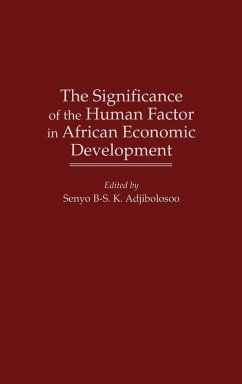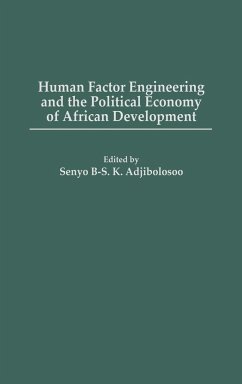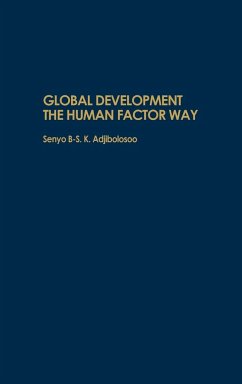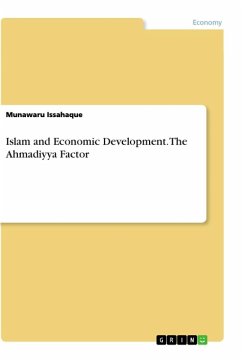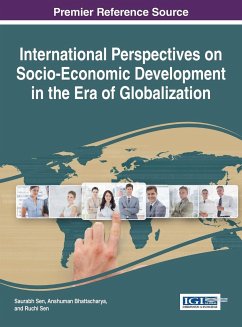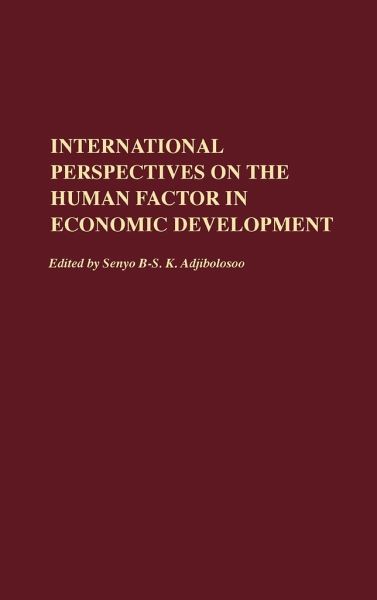
International Perspectives on the Human Factor in Economic Development
Versandkostenfrei!
Versandfertig in 1-2 Wochen
87,99 €
inkl. MwSt.

PAYBACK Punkte
44 °P sammeln!
Focusing on the development agenda of selected developed and developing countries, the contributors in this volume show that the varying degrees of success or failure in the programs of different countries are due to the way they deal with human factor development. Each essay clearly shows that a nation cannot achieve development if it continuously fails to develop its own national human factor. The contributors maintain that what different parts of the world, particularly Southeast Asia, call a development miracle is not a miracle at all. Countries such as Japan and Singapore have experienced...
Focusing on the development agenda of selected developed and developing countries, the contributors in this volume show that the varying degrees of success or failure in the programs of different countries are due to the way they deal with human factor development. Each essay clearly shows that a nation cannot achieve development if it continuously fails to develop its own national human factor. The contributors maintain that what different parts of the world, particularly Southeast Asia, call a development miracle is not a miracle at all. Countries such as Japan and Singapore have experienced significant development in recent decades because their programs have focused intently on building the human factor. Countries such as Mexico, Nigeria, Bolivia, and India, on the other hand, are struggling to develop because their ongoing development programs do not address the human factor. Nations that aspire to achieve sustained human-centered development in the 21st century should focus on human factor development now.



